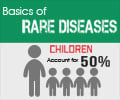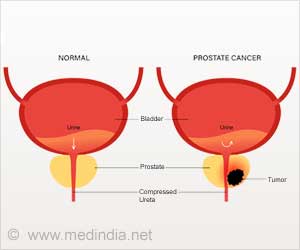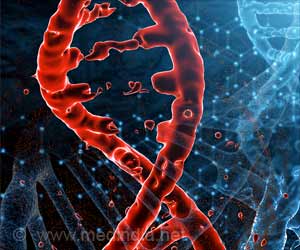The combination of dexamethasone and ruxolitinib is a good treatment for hemophagocytic lymphohistiocytosis (HLH), a rare immune disorder.

‘The combination of dexamethasone and ruxolitinib is a good treatment for hemophagocytic lymphohistiocytosis (HLH), a rare immune disorder.’





In HLH, the immune system becomes over-activated and immune cells produce cytokines, which are chemicals released into the bloodstream to try to recruit and activate additional immune cells. Patients with HLH can experience a cytokine storm syndrome where so many cytokines start circulating that they feed upon themselves to further drive immune activation. There are several cytokines elevated in HLH patients. Some of these cytokines bind to receptors on the cell’s surface. When that happens, those receptors recruit and activate Janus kinases (JAKs), which are signaling molecules.
A new strategy emerges
Previous research by Nichols revealed that the JAK1/2 inhibitor ruxolitinib had a positive effect in mouse models of HLH. By inhibiting the JAK/STAT pathway, ruxolitinib interferes with cytokine communication. Nichols and her team wanted to better understand the mechanism behind this and investigate whether any particular cytokine was more important to inhibit.
“We wanted to know whether any of the cytokines that are elevated in HLH contribute to dexamethasone resistance, and if so, whether blocking the signaling of these cytokines might reverse treatment resistance,” said co-first author Katherine Verbist, Ph.D., of St. Jude Oncology.
Advertisement
“We were able to take lessons learned from our studies of pediatric leukemia, which is also often treated with dexamethasone, and apply them to our study of cytokines in HLH,” said co-senior author Michelle Hermiston, M.D., Ph.D., of UCSF Benioff Children’s Hospitals. “Like in leukemia, we were able to show that a specific cytokine signaling through the JAK pathway could promote resistance to treatment.”
Advertisement
The research was funded in part by Incyte Corporation and Novartis Pharmaceuticals Corp., grants from the National Institute of Allergy and Infectious Diseases (R21AI13490), and the National Institute of Health Medical Scientist Training Program (T32GM007618). Additional support was provided by the Histiocytosis Association of America; Buster Posey Family Pediatric Cancer Pilot Award; the Campini Family Foundation; the Pepp Family Foundation; St. Baldrick’s Foundation; a Genentech Foundation Research Fellowship; and ALSAC, the fundraising and awareness organization of St. Jude.
Source-Newswise










